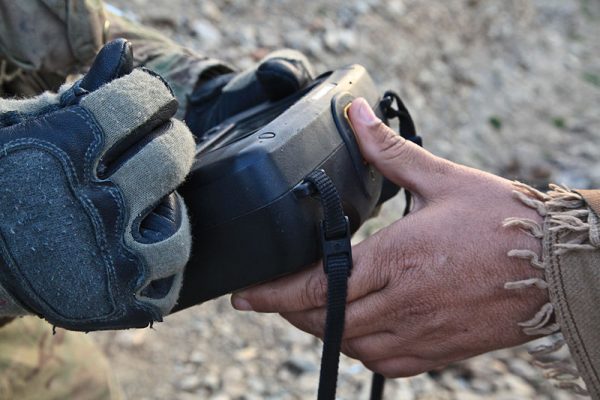With the robust nature of STEM-oriented careers being filled by the Federal Bureau of Investigation (FBI), and colleges churning graduates looking to put all their studious attainment into actionable venues, a potential winning combination is on the forefront. The fusion of FBI badges, firearms, and federal authority mixed with science, technology, engineering or mathematics academia makes for more formidable case investigations which correspondingly serves the American citizenry.
On November 09, 2017 the FBI published its press release announcing the agency’s need to hire special agents with disciplines in Science, Technology, Engineering and Mathematics (STEM). “The country’s enemies, be they terrorists, computer hackers, spies, or financial fraudsters, are exploiting the newest technologies at every turn,” said Special Agent Avatar Lefevre. “If the FBI doesn’t recruit and train the best qualified people in the STEM fields, our adversaries will undoubtedly gain an advantage.”
“If the FBI doesn’t recruit and train the best qualified people in the STEM fields, our adversaries will undoubtedly gain an advantage.”
Ultimately, STEM disciplines further professionalize the feds who, presently, can use the buffer zone. Its recent reputation is encumbered by the boulders foisted by upper echelon individuals whose exploits placed blemishes on the FBI tins. Perhaps STEM-based agents can root-out any internal foes adding instead of bailing water from the FBI vessel.
The ostensibly lackluster nature (selective enforcement) of the Justice Department is part and parcel.
The seemingly rogue appearances and actions of James Comey come to mind first. Former FBI director and current “special prosecutor” Robert Mueller is another toothache that has no business biting into current affairs of the nation. Mr. Mueller’s cohorts –Eric Holder, Loretta Lynch, Hillary Clinton et al.– emanate more mold than they do a potpourri of floral fragrance, shamefully.
Switching from the Self-Centered to the Selfless
The FBI is broadening its investigative talent cadre of specialized agents by recruiting those with modern-age skill-sets. Gone are the days with hand-searching drawers upon drawers of file folders, praying you come across the granule to break the case. Rather mundane and optically-challenging fingerprint analyses consuming massive amounts of staff-hours are a thing of the past.

Enormous spaces housing a large civilian pool of fingerprint examiners in the era of WWII were gradually supplanted by technological advancements generated by software engineers, scientists, and those who fancy numbers thus digitizing outmoded “manual search” methods.

As major enhancements were made from software engineering feats, old-school methods were replaced by modernity. Today, self-explanatory Automated Fingerprint Identification System (AFIS) is widely used by the FBI, American law enforcement, as well as global partners in crime-fighting. The components required to get to this stage were born of STEM-educated students who dedicated their skills to criminal justice measures and military-tech uses in the field of battle.

US soldiers deployed to Afghanistan conduct field interrogatory work whereby suspected Afghans’ thumbprints are scanned. Rapid-response results are achieved by searching known or suspected individuals on various watch lists compiled by US intelligence, to include law enforcement databases designed and maintained by bona fide STEM-oriented gurus.
“Agent Scully”
Like every other law enforcement officer on 09/11/01, I was called in to service. I was fortunate enough to be paired with our specially-assigned FBI agent liaison who, because of her remarkable resemblance to the fictitious FBI character portrayed in The X-Files TV series, I dubbed “Scully.”
I forget her real name and she never had any clue I was calling her “Scully,” so I guess it’s time to let that cat out of the bag. Turns out The X-Files “Scully” character was an FBI investigator who also happened to be a licensed/practicing medical doctor.

On the show, she was often seen in light-blue surgical garb, examining specimens. (And here we are discussing the FBI’s interest in complementing the investigative agency which seeks to add STEM-efficient folks.)

Red hair, dark pants suit, eagle-eye appetite for detail, and an eager spirit donning an FBI badge is what “Scully” exuded both in real-life (my professional experience) and on The X-Files show. I was thrilled to be partnered with “Scully” who seemed beyond ready to facilitate the many endowments offered by the federal law enforcement bigwig agency. And that was 16 years ago. One can imagine the resources they possess currently, especially with the recruitment-reach to add more STEM-oriented agents and their respective specialties.
My police jurisdiction’s demographics in 2001 comprised a growing Muslim population. Police administration and city governance agreed that the potential for backlash against Muslims in our community was fever-pitch real. Coupled with this was the growing federal fact-finding mission to indict Sami Al-Arian who, before his arrest by the FBI, was a STEM student leading to a professorial role at a state university in our backyard. Hence, the federal government took a peek and concurred, dispatching “Scully” to interface with our tiny town of limited means and seeming roots of terrorists in our midst.
What my agency received on that infamous 09/11 day and thereafter were unbridled resources we, as a small municipality, could barely envision in a squad-car daydream. That is not to say we didn’t have conventional equipment necessary to operate a police agency, but boy…the FBI sure did have the largest-ever toy-chest of stuff over which me and my police cohorts salivated. One phone call from “Scully” and we were interfaced with the goods.
Given that the vast majority of the approximately 18,000-plus police agencies have nothing near the specialized resources of the FBI, recruitment efforts such as this are mutually beneficial.
Commonly called “mutual aid” in police and fire services parlance, agencies with more vast stores of resources and special apparatus readily lend those goods so as to achieve optimal results on crime scenes and related public safety ventures. Given that the vast majority of the approximately 18,000-plus police agencies have nothing near the specialized resources of the FBI, recruitment efforts such as this are mutually beneficial.
Outlook
Although the FBI’s intentions to become more empirically sound and superbly efficient are entirely understandable, the US Department of Education (DoE) predicts a bit of a hardship in the scope of STEM graduates.
The DoE elucidates: “The United States has developed as a global leader, in large part, through the genius and hard work of its scientists, engineers, and innovators. In a world that’s becoming increasingly complex, where success is driven not only by what you know, but by what you can do with what you know, it’s more important than ever for our youth to be equipped with the knowledge and skills to solve tough problems, gather and evaluate evidence, and make sense of information. These are the types of skills that students learn by studying science, technology, engineering, and math—subjects collectively known as STEM.”
That is a glorious statement, one which our nation can certainly get behind. But the DoE projections are hoping to go from atrophy to firm muscle growth: “Today, few American students pursue expertise in STEM fields—and we have an inadequate pipeline of teachers skilled in those subjects.”
“Today, few American students pursue expertise in STEM fields—and we have an inadequate pipeline of teachers skilled in those subjects.”
Nonetheless, education authorities are optimistic that changes are on the way stemming from co-opted private/public efforts after recognizing deficiency in applicant roles.

Assuming Department of Education assessments are accordingly distilled, the FBI recruitment drive in STEM-affiliated sources ought to reap dividends over the next few years.
As FBI special Agent Lefevre admits, “Industry is also competing for highly skilled STEM employees, and private companies often pay more than one can make as a public servant. But salary is not the only thing to consider when contemplating a career.” That is a difficult argument to posit and support. In comparison to the private sector, public service is often grossly under-compensated and largely underappreciated (unless you are a victim looking for a hero to save your day).
Bad guys neither see a Petri dish nor do they care one iota about mathematical computations; they only observe a badge and a firearm…and that means you are a target.
Hence, candidates largely concentrate on the private sector as salaries are more handsome and perils are significantly diminished when compared to, in our case, hazards posed by the law enforcement profession. Bad guys neither see a Petri dish nor do they care one iota about mathematical computations; they only observe a badge and a firearm…and that means you are a target.
Is that enough to dissuade STEM-degree holders from applying to the FBI? Logically, yes. But there are always individuals who wish to serve the public on a grand scale, and that demographic comprises those who the FBI is recruiting so as to hone the reach of its technical arms and progressive policing.
















